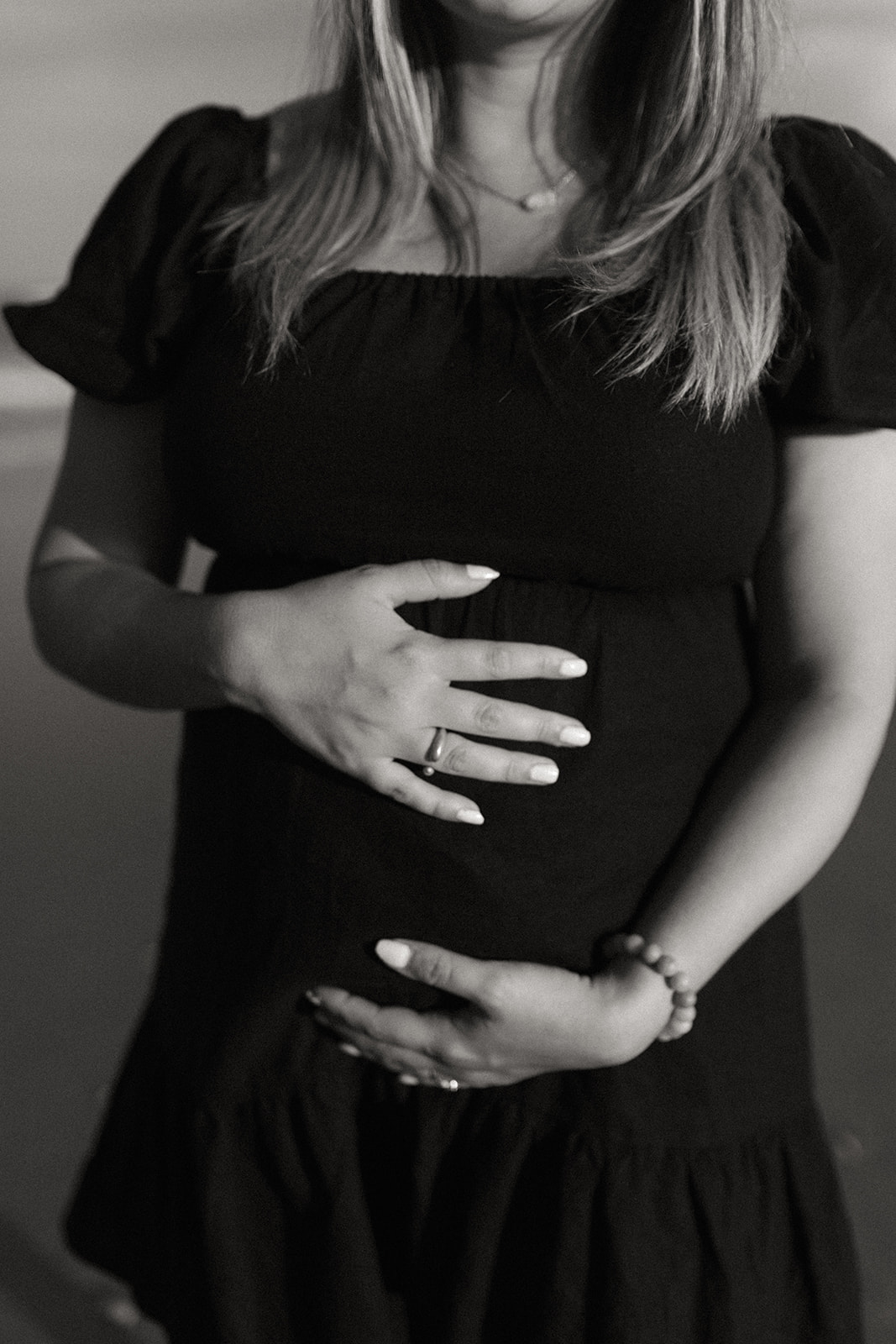Becoming a new mom is an exciting journey, but it also comes with its own set of challenges. The postpartum period can be particularly demanding, both physically and emotionally. Going through the postpartum changes was just as hard for me as carrying my baby for the first year. I had to get used to the idea of breastfeeding and pumping. I struggled to know what to eat and I had to manage my blood pressure as best I could. The entire time you are barely sleeping as you adjust to waking up in the night to feed your newborn. It is a wonderful time but can also be extremely difficult.
Mental health changes and challenges that are common during postpartum:
Anxiety disorders are another common mental health challenge during the postpartum period. New mothers often experience intrusive thoughts about their baby’s safety, excessive worry about their parenting abilities, and physical symptoms like racing heart or difficulty sleeping. The constant pressure to “do everything right” combined with sleep deprivation can intensify these anxiety symptoms, making it difficult for mothers to relax and enjoy their new role.
Identity shifts and adjustment disorders also pose significant challenges during the postpartum period. Many women struggle with the dramatic change in their daily routines, relationships, and sense of self. The transition from being an independent individual to being responsible for a completely dependent newborn can be overwhelming. Some mothers experience grief over the loss of their previous lifestyle, career identity, or social connections, while simultaneously trying to embrace their new role as a parent.
According to recent studies and statistics about postpartum mental health:
- Up to 20% of women experience some form of perinatal mood disorder during pregnancy or within a year of giving birth
- Only about 15% of women with postpartum depression receive professional treatment, despite the condition being highly treatable
- Postpartum depression generally lasts 3 to 6 months. However, this varies based on several factors.
- It is estimated that nearly 50% of mothers with postpartum depression are not diagnosed by a health professional.
- 80% of women with postpartum depression will achieve a full recovery.
- Risk factors include a history of depression, lack of social support, pregnancy complications, and significant life stressors
- Over 60% of women who took their own life during the postpartum period had not seen a mental health care provider within the month leading up to their death.
- Symptoms often emerge within the first few weeks after childbirth, but can appear anytime during the first year
- Over the past decade, suicide attempts during and after pregnancy have nearly tripled.
One of the most significant challenges new mothers face is postpartum depression (PPD), which affects approximately 17% – 21% of pregnant women (Byrnes 507). This condition goes beyond the typical “baby blues” and can manifest as persistent sadness, overwhelming anxiety, difficulty bonding with the baby, and feelings of worthlessness or hopelessness. Many women struggle silently with PPD, feeling shame or guilt about their emotions during what’s supposed to be a joyful time. If this is something you are experiencing please don’t hesitate to reach out for help. Start therapy here.
The good news is that with proper support and treatment, most women recover successfully from postpartum mental health challenges. Treatment options may include:
- Medication when appropriate
- Support groups and peer counseling
- Self-care strategies and lifestyle modifications
- Individual or group therapy sessions (start here)
Understanding the symptoms of PPD and perinatal mood and anxiety disorders is the first step to take when protecting yourself against the dangers of developing mental health challenges in postpartum period. These statistics highlight the importance of mental health awareness and support during the postpartum period. Regular screening, early intervention, and reducing stigma around seeking help are crucial steps in supporting new mothers’ mental health.
Statistics on Postpartum Depression in Men
Studies have found that around 50% of men who have partners diagnosed with postpartum depression will go on to develop depression themselves. – From postpartumdepression.org
Essential Postpartum Tools
To help you navigate this crucial time, I’ve compiled a list of essential postpartum tools that can make your recovery smoother and more comfortable.
1. Comfortable Postpartum Clothing
Invest in soft, stretchy clothing that’s easy to put on and take off. High-waisted leggings, loose-fitting dresses, and nursing-friendly tops are great options. Your body will need time to heal and adjust to not carrying your baby. Give yourself so much time and grace on getting back to yourself. Don’t forget about comfortable, supportive underwear and nursing bras. No one told me I would live in nursing bras for an entire year! I don’t know why it was one of those shocking realizations I just didn’t think about until I was there.
2. Postpartum Recovery Kit
A well-stocked recovery kit can be a lifesaver. Include items such as:
- Perineal ice packs for soothing discomfort
- Witch hazel pads for healing and comfort (these are a must)
- Postpartum pads or adult diapers for heavy flow days (I was so glad my friends gave me some of these before I gave birth because I had no idea that I was going to need those for a few weeks)
- Peri bottle for gentle cleansing (so helpful!)
- Sitz bath for perineal care
3. Breastfeeding Essentials
If you’re breastfeeding, consider these tools:
- Nursing pillow for comfortable positioning
- Nipple cream to soothe sore nipples
- Breast pads to prevent leaks
- A quality breast pump for expressing milk
4. Postpartum Support Belt
A postpartum support belt can help support your abdomen and lower back, aiding in recovery and providing comfort as your body heals.
5. Healthy Snacks and Water Bottle
Keep nutritious, easy-to-eat snacks on hand and a large water bottle nearby. Staying hydrated and well-nourished is crucial for recovery and milk production. This is the time that nutritious carbs will be your friend.
6. Baby Wearing Carrier
A comfortable baby carrier allows you to keep your baby close while freeing up your hands for other tasks. This can be such a comforting practice for new mommas. When you are wanting to keep your baby close and safe while out in public, traveling, or even while being at home, baby wearing is where it’s at.
7. Pumping tools
If you are pumping here’s a few things I found helpful. I pumped for Rhema’s first three months of her life. John helped with night feedings and it was very helpful when I needed a break. My mom watched Rhema when I started to work again and that helped me find comfort knowing she was getting the nutrients she needed.
8. Postpartum Care Apps
There are several apps designed to help new moms track feeding schedules, diaper changes, and their own recovery progress. These can be invaluable tools for staying organized and keeping track of a schedule. I used an app for the first few months while I was getting the hang of the nap, feed, diaper change rhythm.
9. Self-Care Items
Don’t forget about your emotional wellbeing. Consider items like:
- A journal for processing your thoughts and feelings
- Relaxing essential oils or lotions
- Comfortable eye mask for better sleep
10. Pelvic Floor Exerciser
A pelvic floor exerciser can help strengthen your pelvic muscles, which is important for recovery and preventing issues like incontinence.
11. Support Network Contacts
While not a physical tool, having a list of support contacts (like a lactation consultant, postpartum doula, or therapist) can be incredibly helpful. Don’t hesitate to reach out when you need support.
Remember, every postpartum journey is unique. What works for one mom might not work for another. It’s okay to experiment and find what suits you best. The most important thing is to be kind to yourself and give yourself time to heal and adjust to your new role. You’re doing great, mama!
Do you have any favorite postpartum tools that helped you in your journey? Share your experiences in the comments below!
- Perinatal Mood and Anxiety Disorders Byrnes, Lorraine The Journal for Nurse Practitioners, Volume 14, Issue 7, 507 – 513
- The Wisdom of Cognitive-Behavioral Therapy (CBT): A Perfect Gift for New Moms | Anxiety and Depression Association of America, ADAA
- Postpartum Depression Statistics | Research and Data On PPD (2024)




